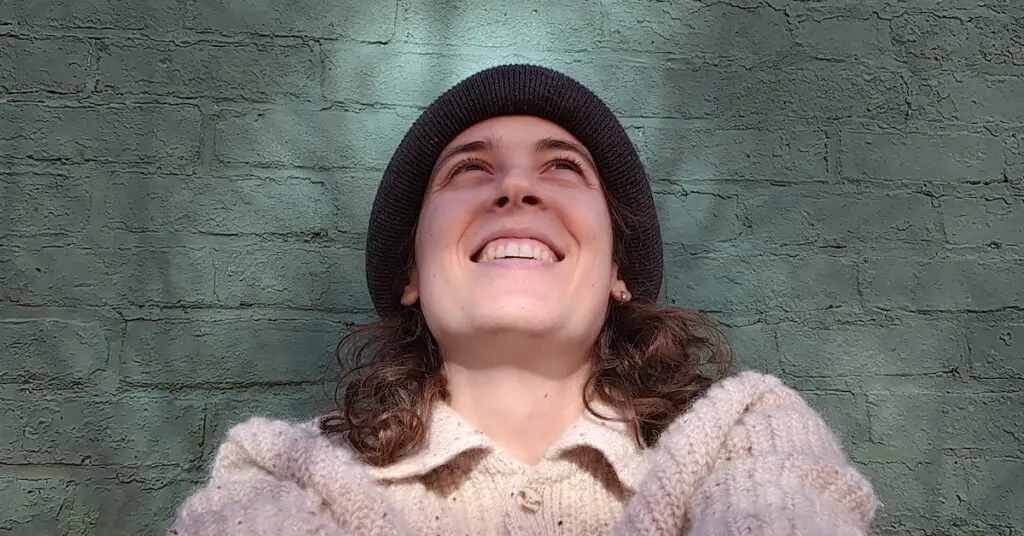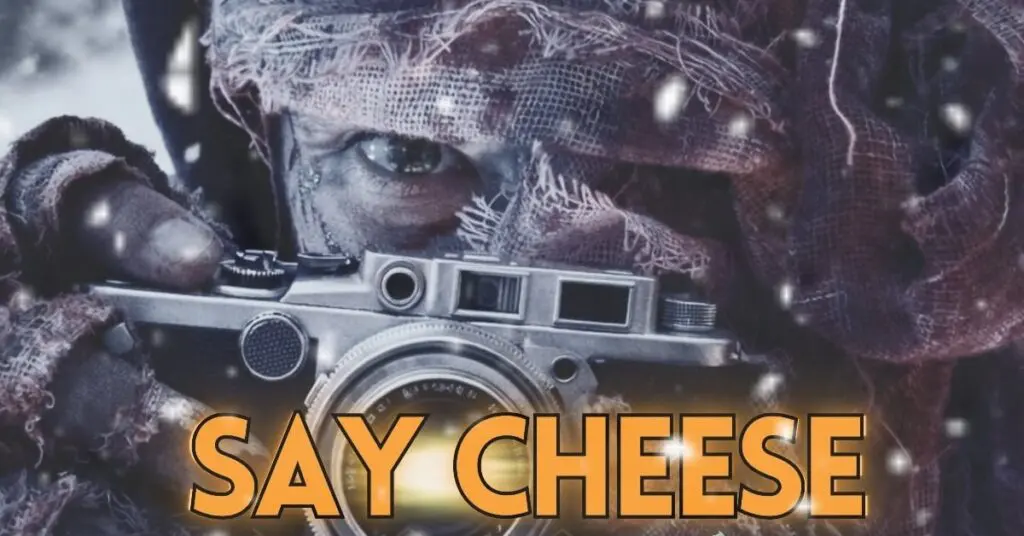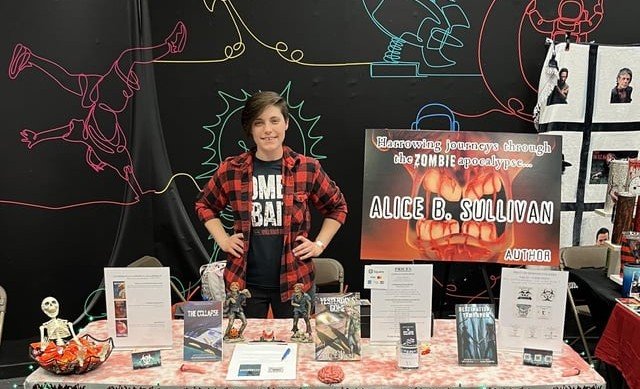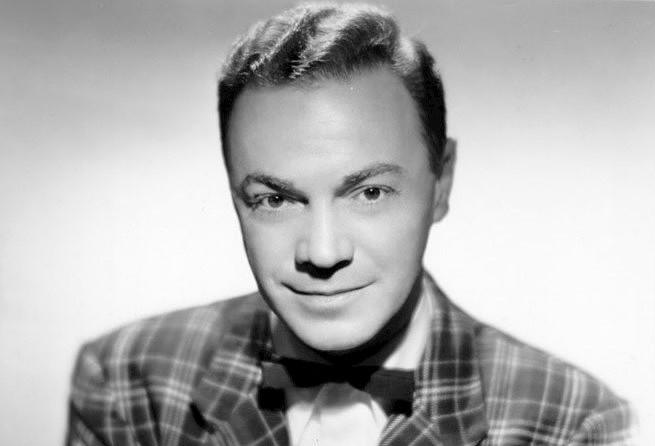Trojan Horns – Interview – Thanks for Asking!
By Staff on May 8, 2024
Trojan Horns – Interview – Thanks for Asking! – by Liam Sweeny.
Xperience Interview Questions: Trojan Horns Brass Band
Tom Eaton – Trombone
Oz McClamrock – Saxophone
Andrew Gorman – Sousaphone
Derek Wolfe – Trumpet
Liam Fitzgerald – Drums
RRX: Music genres are difficult for some artists. Some strictly adhere; others not so much. What is your perspective on the genre you play, or the genres you hover around?
I have always been a huge fan of brass bands ever since I discovered the bands Lucky Chops and Too Many Zooz from New York City. From there, I started studying brass bands backwards through time, discovering bands like Youngblood Brass Band and Rebirth Brass Band. Every brass band has its own style and flair based on where they draw external inspiration from. Some mix in traditional jazz, some mix in rock, and some even mix in hip-hop. Our external inspiration comes from the music that we grew up with, just like many brass bands before us, and I think you hear that in our music. That being said, I find it hard to fit us into a specific genre of music. People will see horns and immediately think that what they are hearing is jazz. I don’t know how I feel about that title. The term “jazz” has always been used to encompass a large variety of improvisation-based music, and I find that it invites a lot of critique and discouragement from listeners who are not fans of what they consider “jazz music.” Funk is another contender, but we don’t exactly have the right instruments to be a traditional funk band. Third-wave experimental brass-based instrumental is not a genre on Bandcamp or Spotify, so we had to label ourselves as a mix of funk and jazz. I think if you take a listen to our music, you will find yourself struggling to lock us into a genre, just like I do. Whatever it is, it’s the most fun I have ever had playing music. – Tom
RRX: With the exception of singing, everyone has an instrument, an inanimate object that has the distinction of being a lifelong friend. Smooth or temperamental, these objects have a character. So pick someone to answer, can you tell us something special about what you play, your technique, your instrument? (Andrew)
I play the sousaphone, which in and of itself is unique and much lesser known, even among trained musicians. It’s basically just a tuba designed for marching by being able to be worn around the body, which also makes it a super easy addition to a band like ours where we stand and move around a lot during performances. The sousaphone functions as our bass guitar in a sense, and mostly supports as a rhythm section instrument along with the drums. Liam (our drummer) and I often find ourselves making decisions spontaneously that really lock in together, which is just part of playing as a rhythm section together on a regular basis. Technique-wise, because I have the advantage of playing with my mouth like all other brass instruments, I can get very precise control over the way notes sound to fit certain styles or really make a big deal out of dynamic changes, which is really cool. -Andrew
RRX: In the musical world, there are many supporting players. Recording engineers, sound techs, cover art designers. Who are three people that support the craft that you would like to shine a spotlight on? (Talk about Jordan, maybe Michael)
- I want to give a shoutout to Michael Gorlin, who mixed and mastered the entire album. Michael is a fellow tenor saxophonist who is an old college friend (and bandmate) of mine, and is now a professional sound engineer. He has a lot of experience mixing brass and woodwind instruments from our horn-based groups in college, so he seemed like a natural choice, and he did a great job. He was able to take our vision for what this album should be and sonically balance it into reality. Which is pretty cool. – Oz
- Jordan Demarest has been someone I have known for such a long time that I forget how we even met. Besides being an amazing drummer, he also became an associate professor of audio technology and recording at SUNY Schenectady at the age of 25. When I asked him to engineer our album, I had no idea what went into it. Jordan kept his positive attitude for the entirety of 4 days while we worked with him to record our album “Ode to Troy”. I don’t think anybody else could hang out with me for 4 days straight and keep a smile on his face but he did the impossible. We genuinely would not be where we are without him. – Tom
- Whenever I see a movie, I think about my friend Ethan Sunkes. He has had a passion for the art of making movies since I met him freshman year of high school. When I had the idea to make a studio video for our song “Beans”, he was the first person I thought of. He is an amazing videographer, editor, and an awesome guy to be around. He also took the photos you can see associated with this interview and he somehow made the five of us look decent. – Tom
RRX: Tell me about your most recent song, album, or video (you pick.) Tell me a story about what went into making it. Not a process, but a cool story that took place within the process.
There’s always an origin story — “Ode to Troy” was my attempt at writing a song that had honks and squeaks in it, and “Beans” was built from a bass line I wrote when I was 9 years old. But I think “NP” probably has the best origin story. About a year ago, I fell pretty hard for this woman, the kind of infatuation that usurps the mind. During this period, I wrote “NP” as a song of denial, more or less trying to deny that I was human and had feelings. I think the sax solo especially, in which I include several recurring motifs that gradually get more and more chaotic, is the best representation of my mental state at the time, while the easy-going and laid-back groove nicely sets the theme of denial. And while I can laugh about it now, the song lives on as an encapsulation of that moment in time. – Oz
RRX: Different people in the band will like different songs. A drummer’s favorite song on the release will be different than the guitar player’s. What are each of your favorite songs from your most recent album? (Everyone)
- Selfishly, my favorite to play is “NP” because of the very long sax solo. But my favorite to listen to and to play from a group standpoint has to be “Beans.” Everyone in the band gets their time to shine, and it’s the one that’s evolved the most since we started doing it, so it really feels like a band-wide creation. Whenever we play it, I just feel like everyone’s having so much fun, both in the band and in the audience. It’s definitely the one I’m the happiest with as a final product. – Oz
- “Friends We’ve Left Behind” has to be my favorite because of some of the bass parts I get to play. In general, I play the same bass line through the song, but because it’s relatively simple, I can get creative with how I interpret it each time to make something new each performance. The breakdown sections have to be the highlights for me, though. Honorable mention goes to “NP” because of its killer groove. – Andrew
- “I Will Survive” has always been one of my favorite songs. There really is nothing specific about it — maybe it’s the old-school funky bass and drums, maybe it’s the way the chords progress, or maybe I just like playing in A minor. I think I just always have fun playing it live with these guys and making the audience happy when they hear it. – Tom
- “Friends We’ve Left Behind” is my favorite song! The song goes through a few different moods and sections and it’s incredibly interesting to listen to and fun to play. The way the song goes from straight-ahead dance-pop to a choppy build-up to the climax being explosive the breakdown back to pop makes the song exciting and interesting to play every time! The song is constructed really well with a clear verse-chorus form that is harmonically repetitive but is met with melodic and rhythmic variations to make the song more interesting. Not to mention in the breakdown section, there is a crazy drum fill section, and being a drummer, it’s a lot of fun to just go off and play to my heart’s desire. – Liam
- “Friends We’ve Left Behind” is my current favorite (it cycles on the week), as a listener for the breakdown sections and as a performer for how open my part is. A lot of the trumpet part is supportive harmony, which allows me to play around with the chords in ways that make each time we play it a little different. As for the breakdown, they are a great way to show how each individual part contributes to the whole band sound, and selfishly I love the siren inspired trumpet part sneaking into the rest of the sonic space. – Derek
RRX: Is there a favorite time of year? What time of year does the band have the most shows? Is there a recurring thing in the year that’s particularly memorable?
Summer
- Because we’re very loud and also don’t require amplification, a lot of our shows are outdoors. So naturally, we have more shows in the summer (June through August) than the rest of the year combined. While we play at live music venues year-round, the summer weather allows us to play a lot of parades and outdoor festivals, and public events as well, so the sheer amount of opportunities we get drastically increases. – Oz
- Summer is definitely our busiest time — mostly because we play outdoors, but also because many of us spend a good portion of the year outside the Capital Region, so summer is the time when we can usually all be back in the same place. The Troy Waterfront Farmers Market is personally a favorite spot to come back to each year, and I, for one, am excited to get back to our hometown and put on a good Saturday morning show. – Andrew
- When I think about brass bands I think about New Orleans, and when I think about New Orleans, I think about how hot and sweaty I am when I go there. You can only get THAT hot and sweaty during the summer in New York. – Tom





 RadioRadioX
RadioRadioX